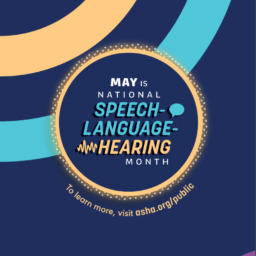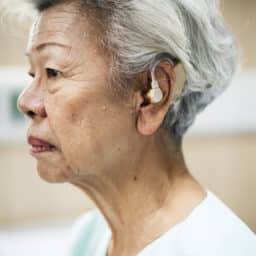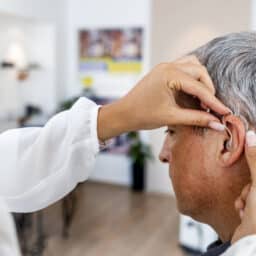Tips To Enjoy Summer Without Swimmer’s Ear

Spending days at the lake or pool is a great way to bask in the summer sun without worrying about baking in the heat. Before splashing around in the water, take some time to learn about swimmer’s ear and how you can protect against it for better ear health this summer. What Causes Swimmer’s Ear?…
Midwest Ear, Nose & Throat Specialists Named a 2024 Top Workplace!

We are excited to share that Midwest Ear, Nose & Throat Specialists has been recognized as a Top Workplace by the Star Tribune. This recognition is especially meaningful because it reflects the positive feedback from our dedicated employees, who are committed to providing the best care for our patients. You can see us named in…
Announcing National Speech-Language-Hearing Month

Announcing National Speech-Language-Hearing Month This May, we are celebrating National Speech-Language-Hearing Month, a refreshed observance dedicated to enhancing public understanding and addressing the full spectrum of communication disorders. Formerly known as Better Hearing and Speech Month, this initiative has been updated to reflect a more inclusive and contemporary approach to communication health. What is National…
Navigating Your Hearing Loss: A Guide to Your Treatment Plan Visit

You’ve noticed some challenges with understanding your friends or loved ones in group situations. Maybe you’ve had a hearing test that suggested you have a hearing loss. Yet taking the next step to understanding what you can do about these challenges may seem unclear. At Midwest Hearing, our comprehensive Hearing Loss Treatment Plan visit is…
New ‘Ears’ Day: Prioritize Your Hearing Health in 2024

As you’re watching the fireworks explode in the sky this New Year’s Eve, take some time to think about setting a few hearing-focused New Year’s resolutions to make your ears a priority in 2024. Resolution No. 1: Protect Your Hearing We often think of hearing loss as something that happens as you age, but there…
‘Ears’ to a Great Holiday Dinner: Let’s Make Your Holiday Feast ‘Sound’ Amazing!

As we dive into the holiday season, it’s time to turn up the fun and ‘amp’ up the joy! No matter your hearing abilities, we want everyone to savor the festive flavors together. Here’s a recipe for creating an unforgettable holiday dinner: 1. Find Your Perfect ‘Sound’ Spot: 2. Dial Up the Volume: 3. Seating…
An Overlooked Connection: Diabetes and Hearing Loss

Understanding the Link As we observe National Diabetes Month this November, it’s important to spotlight a less-discussed aspect of diabetes: its impact on hearing health. Diabetes, known for affecting various bodily functions, also significantly influences auditory health. Research indicates that individuals with diabetes are more likely to experience hearing loss compared to those without the…
Hear, Hear! Hearing Aids Don’t Just Improve Your Hearing; They Might Just Save You from a Fall

It’s something we don’t often think about: the silent but profound impact of hearing loss on our health and safety. As we age, it’s not uncommon for our hearing to diminish, but did you know that this could be putting us at a greater risk than we realize? Recent research is sounding the alarm…
Why Is It Important to Monitor Your Hearing Health Over Time?

Being proactive about protecting our hearing is essential, but sometimes, even with the best efforts, changes can sneak up on us. That’s why keeping an eye—or an ear—on our hearing health is so important. Hearing loss isn’t selective; it can happen even with preventive actions in place. If you notice any shifts in your hearing,…
Tips for Celebrating Audiology Awareness Month

October is Audiology Awareness Month. Audiology Awareness Month is set to celebrate those with, and spread awareness and understanding about, hearing loss, tinnitus and their available treatments. By 2050, nearly 2.5 billion people are projected to have some degree of hearing loss, at least 700 million of whom will likely require treatment. Outside of hearing…
